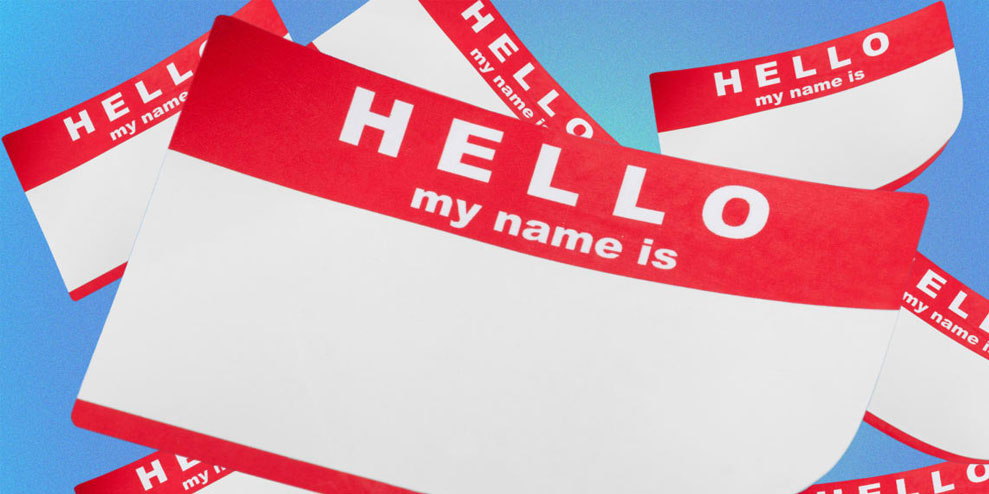Her name is Troi.
Yes, you’re tempted to transpose the two middle letters, making it Tori.
Or to say, “troo-ee.”
Or to assume it’s the same as the French word for three, “twa.”
But it is pronounced as if it ended in a Y and rhymes with “joy.”
Troi Barnes has heard it all, but soon, people will know how to say her name before they even meet her.
This week, LinkedIn launches a new audio feature that lets you record the precise pronunciation of your name. Then, anyone looking at your profile can listen to it.
“Ever seen someone’s name in writing and find yourself not totally sure how to pronounce it correctly? Correct pronunciation is not just a common courtesy—it’s an important part of making a good first impression and creating an inclusive workplace,” the company said in a blog post, explaining the addition of the pronouncer.
Right now, you can only add it on mobile, though anyone can play the audio back on any platform, LinkedIn said. The optional feature, noted by a speaker icon beside your name, will be made available worldwide in the next month.
“If you don’t try to pronounce my name, it’s a feeling of less respect,” Barnes says. “I give people the benefit of the doubt. They were looking too fast . . . Sometimes, I think it’s laziness: ‘If I can’t pronounce their name, I’ll give them a name that makes me feel comfortable without asking them how to pronounce it.’ Most of the time, it’s out of ignorance.”
Everyone from workplace fans of Dale Carnegie’s How to Win Friends and Influence People to broadcast journalists who have pronouncers embedded in their scripts knows how important it is to get names right. Failing to do so is viewed as sloppy at best and as a microaggression at worst.
“Very often when I meet people with quote-unquote unusual names, they’re people of color and indigenous people, and the people pronouncing them who tend to mess it up or don’t ask for clarification of my name are white people,” said Barnes, who’s a junior account executive at Skai Blue Media, a Philadelphia public relations firm named for the founder’s daughter—and pronounced “sky.”
NECESSARY TOOLS FOR A MORE DIVERSE WORKFORCE
As the American workforce grows more diverse and inclusive, the challenges will grow. Whether atypical spellings, differently accented familiar names, or ones from other languages and cultures, it’s a matter of being mindful. Remember that Key & Peele substitute-teacher sketch?
Here, at Fast Company, for example, there’s Maja, who pronounces the J like a Y; Samir with a strong “meer” to bring up the back; and someone who’s proven himself not to be an heir to the Zara apparel fortune by pronouncing his last name mellifluously “ZAR-ah.”
New York-based career consultant Maggie Mistal’s last name rhymes with “pistol. She’ll get “miss-TALL” or an injected R to make it “mistral,” which is a real word (it refers to a strong, cold wind in southern France), but not her name. From a professional development and job advancement perspective, she applauded the new LinkedIn feature.
“It bridges the gap. If you have a hard-to-pronounce name or a different spelling to your name, it makes it easier for people to connect to you,” Mistal says. “People love to hear the sound of their own name. It’s the most beautiful music on earth, but it has to be the right pronunciation of that name.”
She advises people to alert others to mispronunciations—even if the offender is the CEO and the venue is a large room full of people.
“Who you are is what you’re called. People’s names have stories behind them, meaning to them, Mistal says. “[Correcting] communicates to people you have a presence, an identity you care about.”
The shift is already underway. In middle of the 20th century, Hollywood changed its stars’ names without a second thought, but today’s celebrities revel in their unique monikers. Think Uzo Aduba, Saoirse Ronan, Djimon Hounsou, Ming-Na Wen, Zach Galifianakis, and Quvenzhané Wallis.
People butcher Neelima Nair’s name all the time—NEE-lih-mah NYE-er, not Nah-LEE-mah NAIR or any combination thereof— and she doesn’t always correct the offender.
“It depends on the situation,” explains Nair, an organic chemistry lecturer at the University of New England. “Oftentimes I don’t bother, because people struggle to pronounce it the right way. I don’t want to disrupt the conversation, especially if it’s not someone I’m dealing with for an extended period of time.”
Her experience has made her sensitive to others.
“If it’s a name I’m not familiar with and I suspect I might be pronouncing it incorrectly, I’ll definitely ask,” she says.
LinkedIn’s name feature can’t physically follow you into the office, so here are some tips to ensure coworkers get your name right:
- Clearly communicate the right pronunciation from day one.
- Be prepared to have to repeat yourself. Some colleagues might take more time to catch on.
- Gently correct people if they say your name wrong.
- Offer a tip to remember the right pronunciation, like break down the syllables or suggest a rhyming word.
–
This article first appeared in www.fastcompany.com
Seeking to build and grow your brand using the force of consumer insight, strategic foresight, creative disruption and technology prowess? Talk to us at +971 50 6254340 or mail: engage@groupisd.com or visit www.groupisd.com/story




